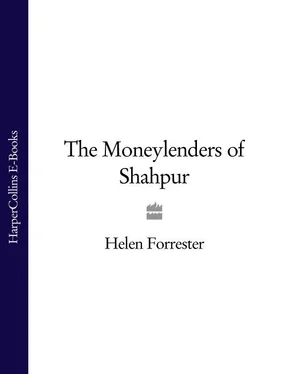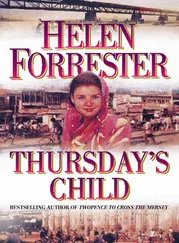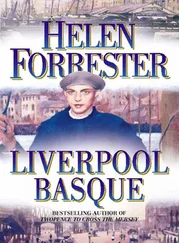The bazaar marked the end of the city. Dr Mehta raised his hand to point towards a group of fine, modern buildings, fronted by well-kept flower gardens.
‘Our new Government University,’ he announced with pride. ‘You can just see our original college – which you’ll remember – through the trees.’
Indeed, John assured him, he did remember – he had been happy when he had attended it. Many of his fellow scholars had been the sons of merchants and moneylenders from the Jain community, sent to the college to obtain a good command of English.
He had always been interested in Jains. They were so determined not to kill anything, not even an insect or one of the souls they believed inhabited the air or crowded into root vegetables and unripe fruit. Their desire not to commit violence meant that they could not use any implement, be it plough or typewriter; so they were usually moneylenders or merchants, though there were many monks and nuns amongst them and a fair number of scholars like Dr Mehta.
‘My bungalow is one of those facing the campus, along that lane over there,’ said Dr Mehta. He clutched the side of the carriage as it bumped suddenly off the gravel road and into the rutted lane he had just indicated. Then as it began to trundle more safely along, he asked, ‘I’m not sure, my dear John, what your plans are …?’
John’s voice was a little defensive, as he replied, ‘My History of India is selling so well in the States, and in Britain and India, that I thought I might follow it with a history of the Gujerat – approaching it, perhaps, through the story of the Marwari Gate temple here in Shahpur.’
Dr Mehta nodded, and directed the driver to his bungalow.
‘An old bachelor like me doesn’t need a great deal,’ John said. He did not know how to explain to Dr Mehta his desperate need to rest and be quiet. England had been as alien to him as to any other immigrant; his upbringing in India had not prepared him for the difference in its way of life. The struggle to earn a living when crippled had also been exhausting.
After the war, he had expected to marry the girl to whom he had become engaged before being taken prisoner, but she had looked with undisguised distaste at his torn legs and viewed with horror his tentative proposal that they should live in India. She had left him sitting in a wheelchair in a military hospital and, a month later, had married someone else. This unhappy experience had tended to make him brusque and defensive with women and he had never proposed to anyone else. He never considered that in spite of his damaged legs he was still a fine-looking man, with his brush of black hair lightly touched with grey, and blue eyes which normally twinkled cheerfully from under straight, bushy eyebrows; he had never really examined himself in a mirror for years.
As they descended from the carriage, Dr Mehta murmured gentle agreement with John’s plans. The driver began to unload the luggage and dump it into the sand.
The compound gate was opened by an excited boy servant. Behind him, fidgeting nervously, was Dr Mehta’s sister, who kept house for him, an old lady in white widow’s garb, her cunning face creased with anxiety about her English visitor, whom she remembered as a precocious, ever curious young man.
Anasuyabehn, small, plump and passive, stood half behind her aunt, peeking at John through thick fluttering eyelashes.
John whistled under his breath. It always defeated him how Jain women could look, at the same time, so prim and so seductive. No one looking at a Jain, he thought, could guess at the passions raging beneath their placid exteriors.
Smiling, both women advanced timidly, putting the palms of their hands together in salute.
As John bowed and said how pleased he was to see them again, he was thinking that if he were Dr Mehta, with a twenty-four-year-old daughter like Anasuyabehn, he would marry her off fast, before she got entangled with someone unscrupulous.
The office of the Vice-Chancellor of Shahpur University was extremely hot. It seemed as if the white walls of the Arts and Science Building had, that September morning, absorbed all the heat of the surrounding desert, and it had then become concentrated in the Vice-Chancellor’s usually pleasant room overlooking the carefully cultivated gardens in front of the building.
The Vice-Chancellor, Dr Yashvant Prasad, drummed his fingers irritably on his desk and tried to concentrate his attention on the papers before him, but the fan kept fluttering them and finally he closed the file and handed it to the Dean, Dr Mehta, who was standing by the desk.
The Dean’s gnarled brown hands shook a little as he took the file from his superior. Today was a fast day and he felt suddenly very weak and weary and thought wistfully of his retirement, still twelve months away.
He flicked over the pages of the file, which was neatly labelled Dr Tilak, Zoology, and said, ‘Dr Tilak should arrive this afternoon. I’m giving him two rooms in the students’ hostel for the present.’
‘That will do very well,’ agreed the Vice-Chancellor.
‘There’s a small room next to the Botany Museum which has water laid on, and I have arranged for him to have it as a laboratory.’ The Dean paled a little. He had long considered the requirements of Dr Tilak, the first staff member to be recruited for the new Department of Zoology. Would he, for instance, pin dead insects on to boards, as they had done in the Bombay Museum? Would he dissect animals? Perhaps, knowing how sacred life was in the Gujerat, he would teach with the aid of pictures and diagrams. Dean Mehta fervently hoped so, as he continued, ‘I – er am not sure what his research involves, but doubtless a little money will be forthcoming for equipment for him?’
‘I doubt it,’ said the Vice-Chancellor glumly. ‘It was difficult enough to squeeze his salary out of the provincial government.’ He chewed his lower lip thoughtfully. ‘I’ll try again,’ he promised.
Several flies were buzzing round the office, so the Vice-Chancellor banged the bell on his desk and called to the peon outside the door to shut the window.
The peon, a thin wraith of a man clad in crumpled khaki, slipped down from his stool and trailed languidly across to the window, skilfully palming his small brown cigarette as he passed the Vice-Chancellor’s desk. He banged the window shut and returned to his stool.
The Vice-Chancellor leaned back in his wooden revolving chair and fretfully pulled at his long straight nose. He thought longingly of his native Delhi and wondered why he had ever agreed to come to the Gujerat to head this struggling university at Shahpur. He had, he thought despondently, only two fellow mathematicians on the staff – poor company for a Harvard man like himself.
The peon brought him a cup of lukewarm, oversweet tea, and, momentarily forgetting the Dean’s presence, the Vice-Chancellor viciously swatted a fly about to descend upon it. Flies all winter, roasting heat all summer; then the humidity before the rains, then the rains themselves with their following of cholera, typhoid and typhus. When the rains stopped there were clouds of mosquitoes carrying malaria to contend with. Really, Shahpur was only fit to live in for about two months of the year.
The Dean tucked the file on Dr Tilak under his arm and said anxiously, ‘I hope that a Maratha like Dr Tilak will fit comfortably into our Gujerati ways.’
‘I am from Delhi and I am managing to do so,’ responded the Vice-Chancellor tartly.
‘Ah, yes, indeed, my dear sir,’ said the Dean, realizing his slip immediately. ‘You are, however, so understanding.’
The Vice-Chancellor bridled and said jokingly, ‘Well, well, at least the British left us a common language, so that it makes no difference that Dr Tilak’s native tongue is Marathi, yours is Gujerati and mine is Hindi.’
Читать дальше












